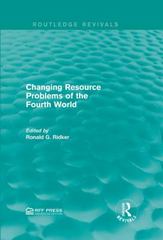Answered step by step
Verified Expert Solution
Question
1 Approved Answer
Why didn't the Fed's quantitative easing policies exert a stronger impact on aggregate demand and lead to a more rapid recovery during 2010-2012? a. The
Why didn't the Fed's quantitative easing policies exert a stronger impact on aggregate demand and lead to a more rapid recovery during 2010-2012? a. The low interest rates accompanying the policy failed to increase stock prices. b. Even though the Fed made additional reserves available to the banking system, the policy did not result in lower interest rates. c. The velocity of money increased, partially offsetting the impact of the Fed's low interest rate policy. d. The earnings of senior citizens and others from money market accounts, saving deposits, and other forms of savings fell, reducing their incentive to spend and thereby increasing aggregate demand
Step by Step Solution
There are 3 Steps involved in it
Step: 1

Get Instant Access to Expert-Tailored Solutions
See step-by-step solutions with expert insights and AI powered tools for academic success
Step: 2

Step: 3

Ace Your Homework with AI
Get the answers you need in no time with our AI-driven, step-by-step assistance
Get Started


